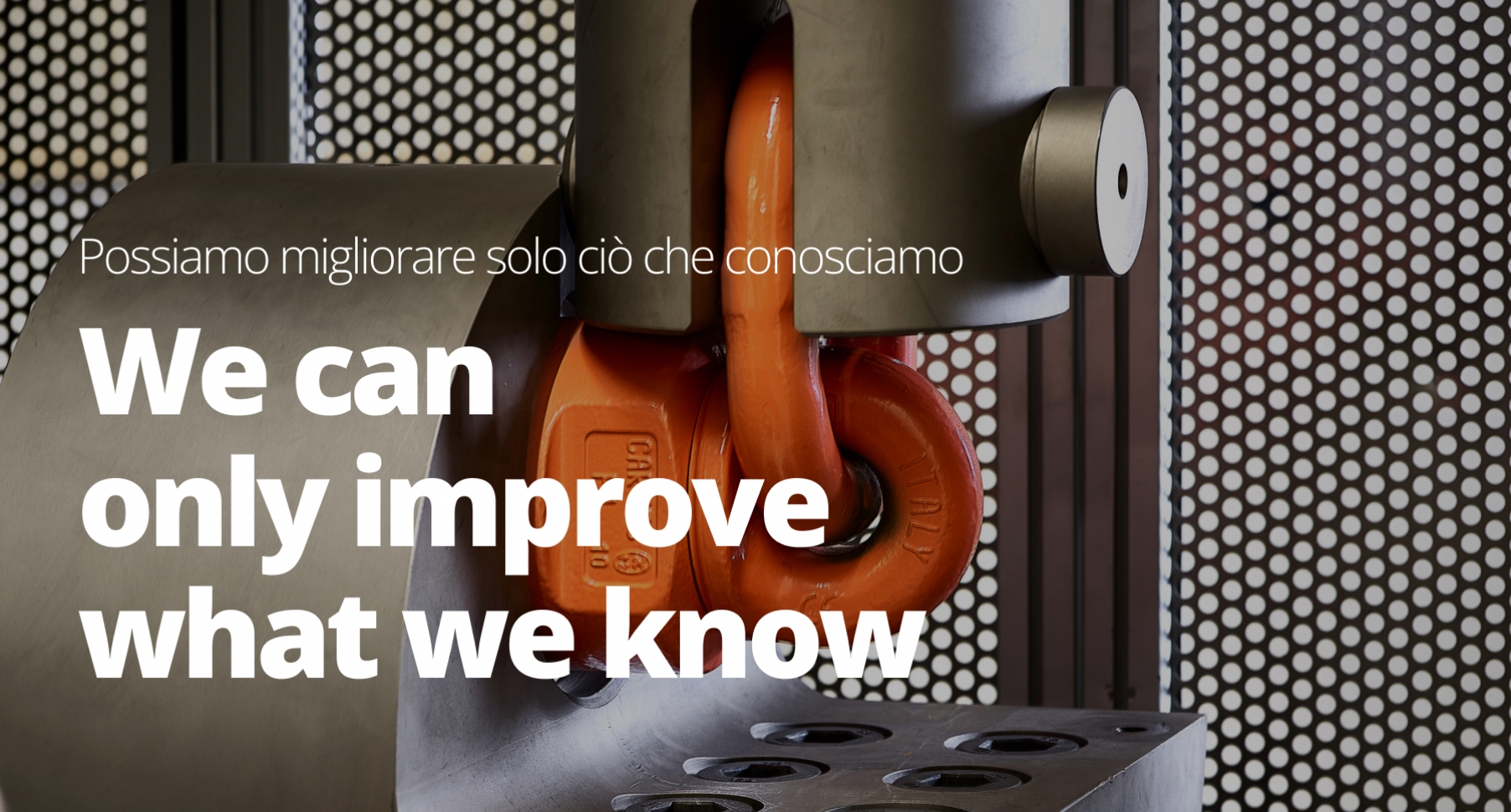We have already mentioned that it is essential for Carcano, on the one hand, to ensure that its customers enjoy maximum reliability from the products that leave our warehouses and, on the other hand, to achieve the principle of total quality which has always been at the heart of our production philosophy. In practical terms, how do we deal with these two tensions? How do we demonstrate to our customers around the world that this really is the path the company follows on a day to day basis? We need, therefore, to start from one concept that may be taken for granted, but which is actually of fundamental importance: in order to improve something, you need to know it thoroughly and unequivocally.
Process monitoring: we can only improve what we know
Knowledge and measurability are at the heart of total quality – an objective we aim for in our work every day – and the very possibility of making improvements: this is why process monitoring is absolutely essential.


Control and monitoring of processes
Quality and ongoing improvements are based on an essential condition: having full control over what is being done thanks to precise and accurate measurements.
You can only really improve the things you can measure: to be sure of the excellence of a product and its increased quality and performance over time, each production phase needs to be monitored and also provide clear-cut and comparable data over time.
This is why Carcano, for example, has not only adopted an ISO 9001 certified quality management system, but has also set up an in-house laboratory capable of conducting all those tests which allow us, on the one hand, to test the quality of production batches and, on the other, to provide evidence of and support company improvements.
Tests and trials thanks to our in-house laboratory
Precisely with a view to monitoring processes, Carcano equipped itself with a fully fitted-out in-house laboratory to run tests first-hand and check each production batch.
Therefore, if process monitoring depends primarily on obtaining accurate data, that is traceable and comparable over time, the first step is to obtain such data: Carcano has in fact, among other things, an in-house laboratory adequately equipped to carry out all the tests required for testing its articles.
The way the in-house laboratory is structured allows the quality of the production processes to be monitored comprehensively: each single batch is tested and the data is recorded so that it can be traced and retrieved at any time, even after years.
The tests that the in-house laboratory can perform, include traction tests on a horizontal axis of up to 100 tons and 12 metres of useful span, traction tests on a vertical axis of up to 40 tons, spectrometric tests for checking chemical analyses, hardness and resilience tests, magnetoscope tests or those using penetrating liquids to search for surface cracks and tests to check surface coatings.
Issue of certifications for our products
Depending on the type of product and the buyer’s needs, the laboratory can provide a series of certificates proving that the products meet the specified requirements
Depending on the type of product and the customer’s needs, the laboratory is also able to issue a whole series of useful certifications, as proof of the company’s attention to quality and environmental issues, and proof of the checks it has performed to ensure that the delivered products comply perfectly with the required technical characteristics.
The certifications and certificates that the laboratory can issue include the Certificate of Conformity (UNI EN 10204/DIN 50049-2.1) which certifies that the products comply with what was agreed in the order phase, the Certificate of Inspection (UNI EN 10204 /DIN 50049/2.2) which certifies not only the compliance of the products with respect to what was agreed, but also the test results based on non-specific controls or the Test Certificate (UNI EN 10204/DIN 50049/3) which is issued by an inspector designated by the official regulations or is validated by a buyer’s representative on the basis of checks and tests carried out in compliance with the technical specifications in the order phase.
The CE Declaration of Conformity (2006/42/EEC) is also issued, which declares the product’s conformity to the reference technical specifications and provides the limits of use and instructions for use.




